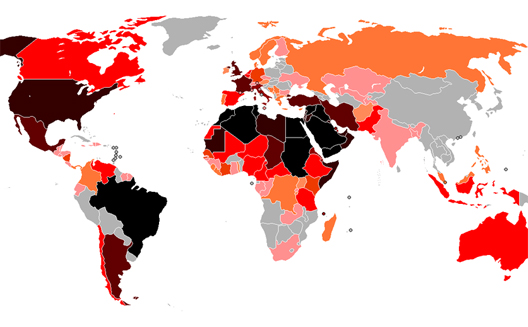How Can Entrepreneurs Access and Utilise Diaspora Networks?

 This is a selection taken from Take Advantage of
Your Diaspora Network, by Daniel Isenberg of Babson College and
William Kerr of Harvard Business School, which you can download on
Wamda here.
This is a selection taken from Take Advantage of
Your Diaspora Network, by Daniel Isenberg of Babson College and
William Kerr of Harvard Business School, which you can download on
Wamda here.
By their very nature diaspora networks (DNs) can be challenging to penetrate even if an entrepreneur is a member of the ethnic group. In fact, biases may even exist against second- generation or third-generation immigrants when interacting with members of their native country. This paper closes with some steps entrepreneurs can take to exploit their DNs, some of which are common sense, some of which are less obvious. The heterogeneity of these networks requires, however, that these steps be adapted to the particular characteristics of the DN in question.
Map out the DN: In any given city or country, members of DNs often cluster in residential neighbourhoods, in public rganizations, in schools, and in industries and companies. The first step in exploiting any DN is to develop an informal map of where the members are concentrated. In Tokyo, Americans tend to live in Azabu, shop in Omotesando and hang out at the American Club. Many of them work for professional service firms such as Morgan Stanley, McKinsey and subsidiaries of large American firms.
Identify the formal rganizations: Many countries have offices whose purpose is to facilitate trade and investment between countries and whose doors are open to nationals who are visiting from their home countries. These offices maintain formal databases and, informally, the officers can often give important advice on who to contact and what mistakes to avoid. These formal organizations are not in and of themselves DNs, but they are closely related. They are often an excellent source of information about DNs, including the names of specific individuals, companies or less visible informal DN rganizations, clubs or groupings. Furthermore, it is sometimes possible to recruit officers from such rganizations – they are often very knowledgeable, have good local contacts and view their current position as a stepping-stone to the private sector.
Tap into informal rganizations: Great sources of contacts are the more or less informal rganizations of ethnic entrepreneurs and other business professionals. These rganizations are most frequently found in communities where there is a concentration of immigrant professionals living and working – in the US they are often centred on high-tech zones like Silicon Valley or universities like MIT. Two prominent Indian examples are The IndUS Entrepreneurs (http://www.tie.org) and Silicon India (http://www.siliconindia.com); Chinese examples include Hua Yuan Science and Technology Association (http://www.hysta.org) and the Chinese Entrepreneur Association (www.ceaa.org).
Identify the influential members of your DN: When you have identified the formal and informal rganizations and the concentrations of people from your relevant network, it is very important to develop contacts with credible and influential individual DN members. This may sound obvious, but it can be a subtle exercise to identify people who have high credibility within the local business community and the DN immigrant or expatriate community. Some languages have mildly derogatory terms for those expatriates who have gained credibility in the host country, sometimes unjustifiably, but have lost it within their own ethnic community. Having a coach, confidant, advisor or board member who is respected by both ‘sides’ is a very scarce and valuable resource. Such informal intermediaries can provide information, contacts, institutional access and culturally informed guidance.
Remember to give back: When you have the experience, understanding, contacts and access yourself, remember to help others who are in the same position that you were in a few years before. Your own carefully created credibility will be useful to others and will further enhance your credibility, stature and leadership ability on both ‘sides’ of the DN.
Summing up
Many of the benefits of DNs are obvious. The launch of a new venture, however, is a very intense time, and it is often easy to overlook the simple but powerful resources that can aid you. DNs are one such important resource for international entrepreneurs. Some founders will be able to tap into a DN naturally due to their ethnicity; others may need to assemble complementary team members or advisors who have access to these communities. Due to the informal nature of DNs, entrepreneurs should invest in developing these relationships well in advance of specific needs. Only with such investments will DNs deliver their full potential.
[photo of the Arab Diaspora courtesy of Wikipedia]


